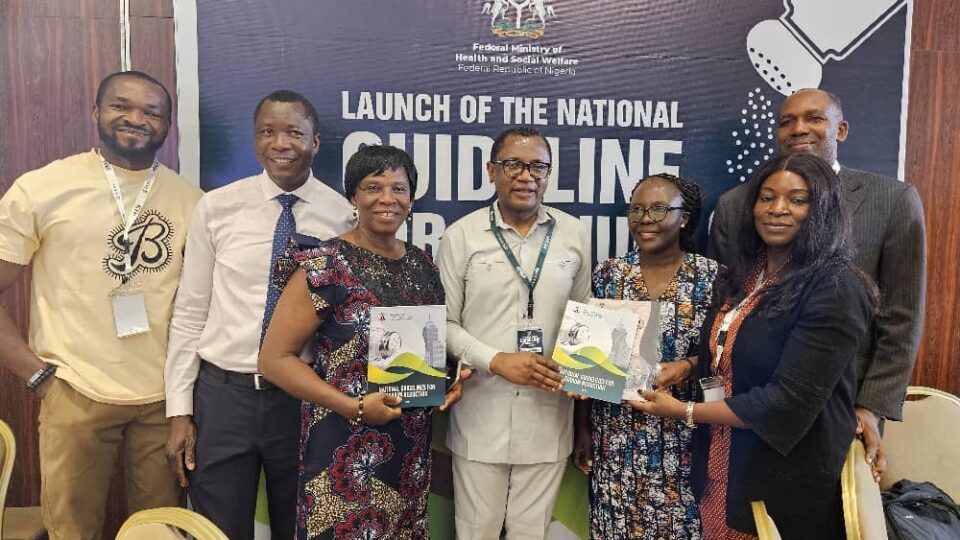By Felix Khanoba
The National Guidelines for Sodium Reduction, a policy document aimed at curbing excessive salt consumption and reducing the prevalence of hypertension and cardiovascular diseases in Nigeria, has been launched in Abuja.
The Minister of State for Health and Social Welfare, Dr. Iziak Adekunle Salako, unveiled the guidelines on Wednesday, March 26, 2025.
Represented by Olubunmi Aribeana, Director of the Food and Drug Services Department at the Federal Ministry of Health and Social Welfare, Salako said the key components of the initiative include nationwide awareness campaigns on the dangers of excessive sodium intake, regulatory measures to limit salt content in processed foods, and collaborations with the food industry to reformulate products with reduced sodium levels.
According to the minister, additionally, a monitoring and evaluation system will be established to assess sodium consumption trends across various states s and demographics, adding that community-level interventions will also play a crucial role, with local leaders spearheading nutrition education programmes to encourage healthier eating habits among Nigerians.
The guidelines are the product of extensive research conducted through the Nigeria Sodium Study, a project funded by the National Institutes of Health (NIH).
Led by the University of Abuja’s Cardiovascular Research Centre, the study was carried out in partnership with Washington University in St. Louis, Northwestern University in Chicago, and The George Institute for Global Health at the University of New South Wales, Australia.
Speaking at the launch, Professor Dike Ojji, lead investigator at the Cardiovascular Research Centre and principal investigator of the Nigeria Sodium Study, emphasized the significance of the research in shaping effective policies.
“The Nigeria Sodium Study provided critical insights into sodium consumption patterns across different population groups and regions. It included a retail survey that examined sodium content in packaged foods to establish regulatory standards, a comprehensive dietary sodium intake assessment, and stakeholder interviews aimed at tailoring policies to Nigeria’s unique dietary practices and health landscape,” he explained.
Professor Ojji further underscored the importance of collaborative efforts in addressing hypertension in Nigeria.
“Our collaboration with various stakeholders enhances our capacity to address one of the critical public health challenges in Nigeria; and we feel that when fully implemented, the National Guidelines for Sodium Reduction that has been launched by the government will help drive down the burden of hypertension in Nigeria.”
Emphasizing the broader impact of the study, co-principal investigator Professor Mark Huffman from Washington University noted its potential as a model for other nations.
“Reducing sodium intake is a key strategy in improving heart health and preventing deaths from cardiovascular diseases. The collaborative efforts between our institutions demonstrate the power of international partnerships in solving global health,” Huffman said.
On his part, Professor Bruce Neal from The George Institute for Global Health and co-investigator echoed similar sentiments.
“We are proud to be part of a study that sets a precedent for other countries facing similar health challenges. The findings and resulting guidelines offer a roadmap for sodium reduction interventions worldwide.”
The launch of the National Guidelines for Sodium Reduction marks a milestone in Nigeria’s public health sector, with the potential to significantly improve national health outcomes, reduce hypertension rates, and enhance the quality of life for millions of Nigerians.



